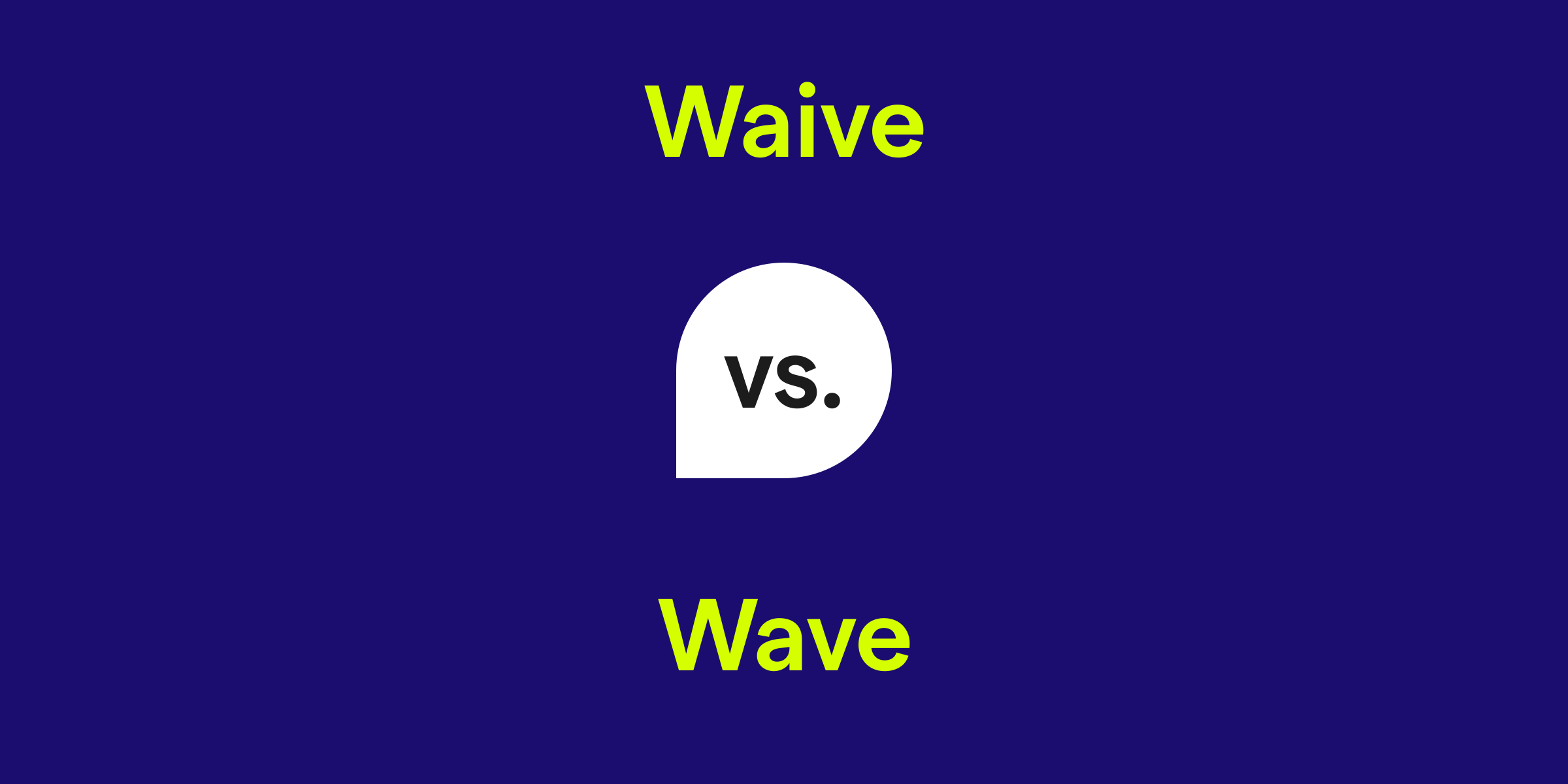Waive vs. Wave: What's the Difference?
The words waive and wave are homophones, meaning they sound alike but have different meanings and uses. To waive means to voluntarily give up a right or claim, often used in legal or formal contexts. Wave, on the other hand, typically refers to the act of moving one's hand to and fro in greeting or the undulating movement of the sea or a flag.

How do you use the word waive in a sentence?
Use waive when you want to express that someone is relinquishing a right or privilege. It's common in legal, bureaucratic, or administrative settings where policies and rights are involved. For example, signing a waiver may be a formal act of waiving certain legal rights.
Examples of waive in a sentence
- She decided to waive her right to a lawyer and represent herself in court.
- The college agreed to waive the application fees for all high school seniors in the district.
- Before participating in the event, all attendees must sign a form to waive liability.
How do you use the word wave in a sentence?
Use wave to describe a gesture of the hand, often as a greeting or farewell, or to refer to a swell or series of swells in the ocean. It can also signify a surge or outbreak of an occurrence or feeling. The versatility of wave covers physical and metaphorical applications.
Examples of wave in a sentence
- She gave a small wave and smiled as the train pulled away.
- The audience erupted in applause, and the conductor responded with a gracious wave.
- A powerful wave knocked him off his feet as he was surfing.
Waive and wave definition, parts of speech, and pronunciation
Waive definition:
To waive is to relinquish voluntarily, as in surrendering a right or privilege. This term is frequently used in legal contexts where formal renunciation is implied.
Waive parts of speech:
Waive pronunciation:
Pronounced as /weɪv/, it rhymes with cave and brave.
Wave definition:
Wave as a noun signifies a moving swell or series of swells in water, a gesture of the hand, or a widespread surge of an element or sentiment. As a verb, it means to move to and fro with a sweeping motion or signal with the hand.
Wave parts of speech:
Wave pronunciation:
Pronounced as /weɪv/, it is phonetically identical to waive.
To waive is to relinquish voluntarily, as in surrendering a right or privilege. This term is frequently used in legal contexts where formal renunciation is implied.
Waive parts of speech:
- As a verb: You can waive fees if you meet certain criteria.
- There isn't a common usage of waive as a different part of speech.
Waive pronunciation:
Pronounced as /weɪv/, it rhymes with cave and brave.
Wave definition:
Wave as a noun signifies a moving swell or series of swells in water, a gesture of the hand, or a widespread surge of an element or sentiment. As a verb, it means to move to and fro with a sweeping motion or signal with the hand.
Wave parts of speech:
- As a noun: The wave washed over the bow of the boat.
- As a verb: They waved goodbye as their friends drove away.
Wave pronunciation:
Pronounced as /weɪv/, it is phonetically identical to waive.
Waive vs. Wave in a nutshell
While waive and wave sound the same, their meanings are distinct. Waive refers to the intentional surrender of a right or privilege, often in a formal context. Wave encompasses both the verb to signal with a sweeping hand gesture and the noun describing a swell in water or a surge in occurrences. Recognizing the context in which each word is used can prevent misunderstandings and ensure precise communication.
Get AI Writing Assistance Wherever You Type
Make sure your vocabulary is on point and every punctuation mark is in the right place, no matter where you’re working. Grammarly works across more than 1 million websites and apps so you can improve your writing without copying, pasting, or breaking focus.

More Commonly Confused Words
Interest piqued? Pore (not pour) over other commonly confused words to help your writing reach peak (not peek) performance.